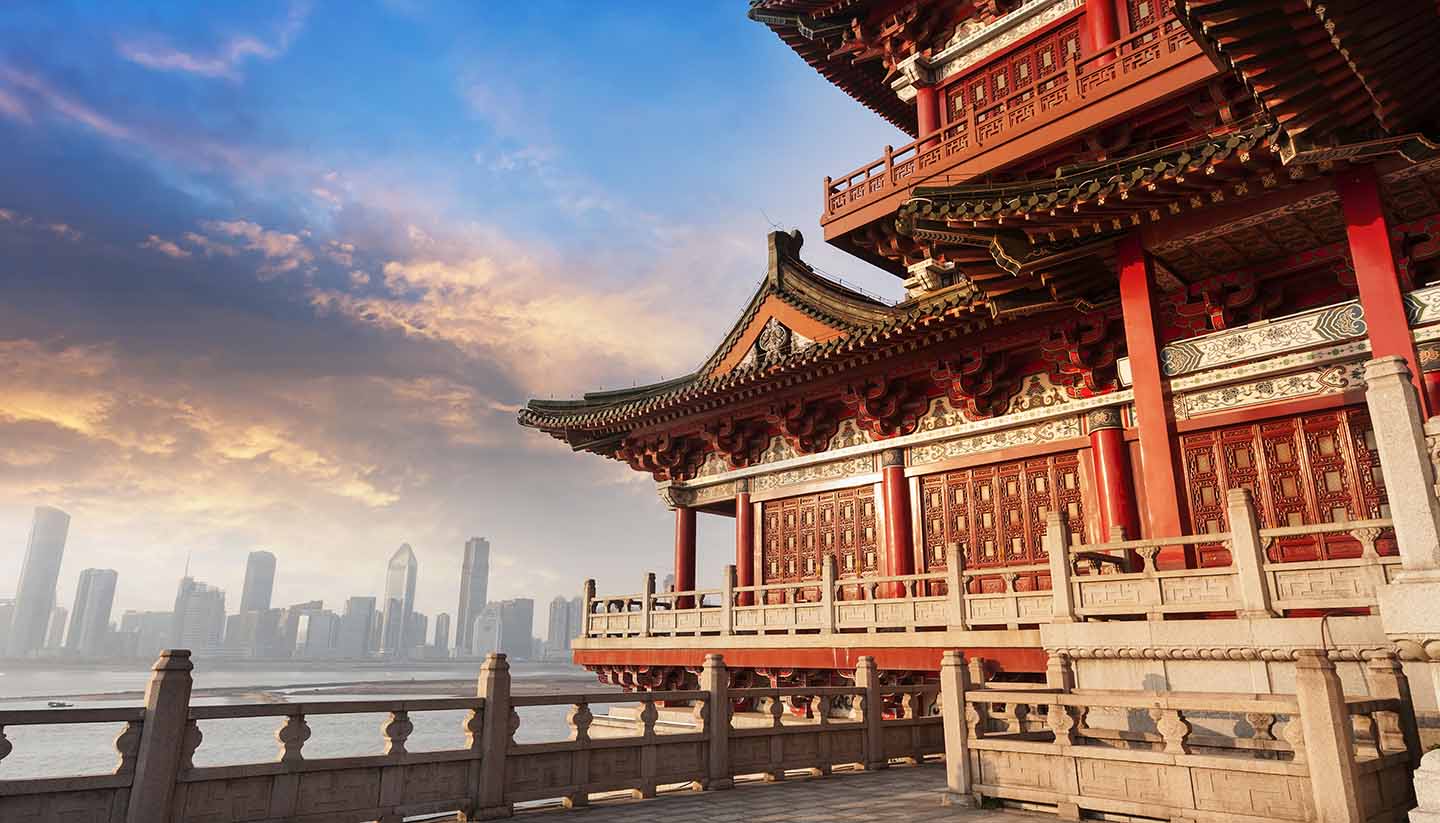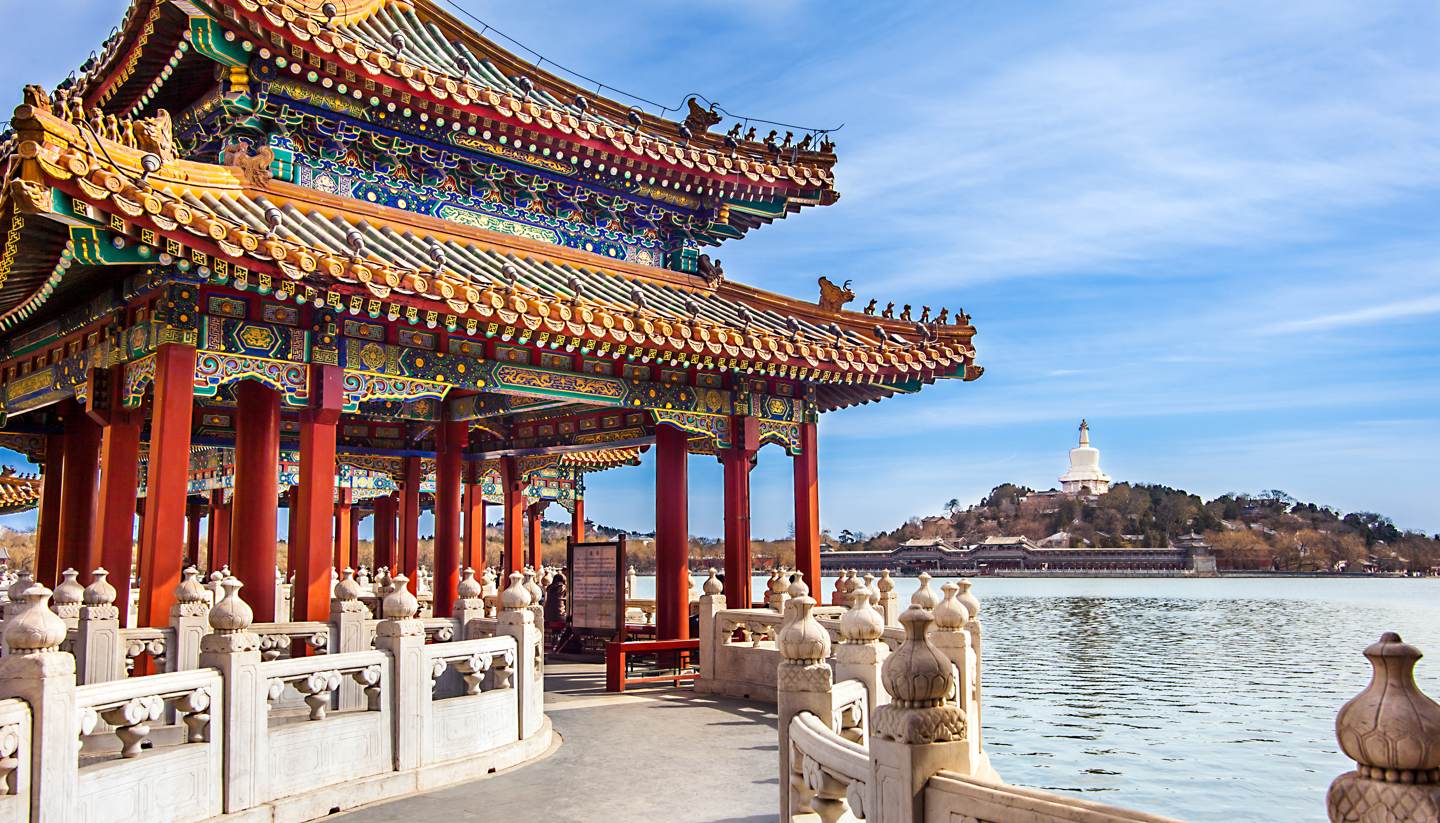Things to see in Beijing
Attractions
Temple of Heaven Park
Beijing's largest imperial park is a wonderful place to spend a sunny morning watching locals fly kites and practise tai chi. It’s a sublime setting for the Temple of Heaven complex, centred on the Hall of Prayer for Good Harvests, an exquisite tiered temple used by the emperor to ask the gods for favourable harvests. Facing the hall is the Circular Mound Altar, where the emperor prayed for good weather.
Address: Dongcheng, TianTan Road, Beijing, 100050Telephone: +86 10 6702 8866.
Opening times:
Daily 0800-1730 (Mar-Jun); daily 0800-1800 (Jul-Oct); daily 0800-1700 (Nov-Feb).
Website: http://www.tiantanpark.com/cn/Admission Fees:
Yes
Disabled Access: YesUNESCO: Yes
Summer Palace
Beijing’s magnificent Summer Palace was used by the royal court as an escape from the heat of the city. Resplendent after a makeover, the former imperial residences are located on the shores of Kunming Lake, which is dotted with small islands, ornamental bridges and a marble boat that was once a teahouse. Flanking the lake is Longevity Hill, crowned with landmark pagodas and pavilions.
Address: Haidian, 19 Xinjiangongmen Road, Beijing, 100084Telephone: +86 10 6288 1144.
Opening times:
Daily 0800-1700 (summer); daily 0830-1630 (winter).
Website: http://www.summerpalace-china.comAdmission Fees:
Yes
Disabled Access: YesUNESCO: Yes
Hutong alleyways
Exploring these centuries-old alleyways ranks among the most memorable of Beijing experiences. Contained within are historic siheyuan (courtyard homes), often hidden behind large, red wooden doorways. Many have been split into smaller, less uniformed dwellings, adding to the ramshackle charm. Though many hutongs were destroyed in Beijing’s push to modernise, some areas remain, particularly around the Drum and Bell Towers and Nanluoguxiang in Dongcheng, and close to Houhai lake.
Address: Dongcheng, Xicheng, , Beijing, 100009Telephone:
Opening times:
Daily 24 hours.
Website:Admission Fees:
No
Disabled Access: NoUNESCO: No
Tiananmen Square
There's only one place to begin exploring Beijing: Tiananmen Square, where Mao Zedong declared the foundation of the People's Republic. Though widely identified with the suppression of student-led pro-democracy protests in 1989, the world's largest public square is an impressive sight, flanked by Communist edifices and the towering gatehouse to the Forbidden City. Adjacent is the Chairman Mao Memorial Hall, where Mao Zedong's preserved body is on display for perpetuity.
Address: Dongcheng, West Changan Street, Beijing, 100006Telephone:
Opening times:
Daily 24 hours.
Website:Admission Fees:
No
Disabled Access: YesUNESCO: No
Forbidden City
Built in the 15th century, the former home of the Emperor of China is a magical complex of courtyards, palaces, pavilions and gardens, scattered across a vast compound and protected by fortified walls. Home to 24 emperors from the Ming and Qing dynasties, this UNESCO Heritage site is amazingly preserved, despite the political upheaval in the 20th century. The palaces and chambers house a vast collection of priceless relics, including paintings and ancient pottery.
Address: Dongcheng, 4 Jingshan Street, Beijing, 100009Telephone: +86 10 8500 7938
Opening times:
Daily 0830-1700 (Apr-Oct); daily 0800-1700 (Nov-Mar).
Website: http://www.dpm.org.cnAdmission Fees:
Yes
Disabled Access: YesUNESCO: Yes
National Center for the Performing Arts
Known as 'the Giant Egg' due to its shape - an ellipsoid dome of titanium and glass - this massive venues has three state-of-the-art performing halls: the Opera House, the Concert Hall, and the Theatre. Nestled west of Tiananmen Square and near the Forbidden City, it is easy to get to and enjoy a great performance.
Address: Xicheng, 2 W Chang'an Ave, Beijing, 100031Telephone: +86 10 6655 0000
Opening times:
Tue-Sat 0900-1700
Website: http://en.chncpa.orgAdmission Fees:
Yes
Disabled Access: YesUNESCO: No
Beihai Park
Beihai Lake covers almost half of the 69-hectare (171-acre) Beihai Park, providing locals with somewhere to escape the city crush. This is a popular spot for ice-skating in winter and boating in summer. Qiong Hua Island (Jade Flowering Island), to the southern end of the lake, is reached by an arched marble bridge and is home to a Tibetan Buddhist shrine (the White Pagoda) and the Yong'an Temple (Temple of Everlasting Peace).
Address: Xicheng, 1 Wenjin Street, Beijing, 100034Telephone: +86 10 6403 3225.
Opening times:
Daily 0630-2100 (Apr-Oct); daily 0630-2000 (Nov-Mar).
Website: http://www.beihaipark.com.cn/enAdmission Fees:
Yes
Disabled Access: YesUNESCO: No
Drum Tower and Bell Tower of Beijing
Drum Tower was originally raised in the 13th century and reconstructed around 1420, when the adjacent Bell Tower also appeared. The buildings served as the city’s official time markers and alerted citizens to curfews when the city was under siege. Still containing the original drums and bells, the strikingly different towers offer wonderful views across Beijing.
Address: Dongcheng, Di'anmen Wei Main Street, Beijing, 100006Telephone:
Opening times:
Daily 0900-1700.
Website:Admission Fees:
Yes
Disabled Access: YesUNESCO: No
Chaoyang Theater
Over the past 20 years, more than three million people have seen "The Flying Acrobatic Show" performed by the acclaimed Beijing Acrobatic Troupe. Each show lasts about an hour and discounts are available if tickets are booked online.
Address: Chaoyang, 36 North East Third Ring Road, Beijing, 100001Telephone:
Opening times:
Daily 1500-2000
Website: http://www.chaoyangtheatre.comAdmission Fees:
Yes
Disabled Access: YesUNESCO: No
Beijing Zoo
The oldest zoo in the Asia Pacific region is home to world-famous giant pandas and more than 7,000 other animals, including golden monkeys from Sichuan, tigers from Hunan, and snow leopards from Tibet. A private garden during the Qing dynasty, it later became an experimental farm and small menagerie. It first opened to the public in 1908, but was destroyed during the Japanese occupation of Beijing (1937-1945), reopening in 1950.
Address: Xicheng, 137 Xizhimen Outer St, Beijing, 100044Telephone: +86 10 6839 0274
Opening times:
Daily 0730-1800 (Apr-Oct); daily 0730-1700 (Nov-Mar).
Website: http://www.bjzoo.comAdmission Fees:
Yes
Disabled Access: YesUNESCO: No
Jingshan (Prospect Park)
North of the Forbidden City, Jingshan Park contains Coal Hill, a mound created from the soil excavated from the palace moat. It's a peaceful spot with views over the golden rooftops of the imperial buildings and is the highest point in Beijing's inner city.
Address: Xicheng, 44 Jingshanxi Street, Beijing, 100009Telephone:
Opening times:
Daily 0600-2100 (Apr-Oct); Daily 0630-2000 (Nov-Mar).
Website:Admission Fees:
Yes
Disabled Access: YesUNESCO: No
Lama Temple
The Lama Temple (also known as Yonghe Temple) was built in the 17th century as a centre of learning for the Yellow Hat sect of Tibetan Buddhism. Closed after the Cultural Revolution, it reopened in the 1970s and now hosts a community of around 70 monks. Inside are a series of grand halls covered in exquisite woodcarving and ornamental tiles. The furthermost hall has a stunning 18m-high (59ft) statue of Maitreya, the future Buddha, carved from a single sandalwood tree.
Address: Dongcheng, 12 Yonghedong Street, Beijing, 100007Telephone: +86 10 6404 4499.
Opening times:
Daily 0900-1600 (Nov-Mar); daily 0900-1630 (Apr-Oct).
Website: http://www.yonghegong.cnAdmission Fees:
Yes
Disabled Access: YesUNESCO: No
Tourist Offices
Beijing Municipal Commission of Tourism Development
Address: Xicheng, 49 Di'anmen Xidajie , Beijing, 100009Telephone: +86 10 6403 2726.
Opening times:
Mon-Sun 0900-1700.
Website: http://english.visitbeijing.com.cnThe Beijing Municipal Commission of Tourism Development maintains a network of Beijing Tourist Information Centers around the city where you can book city tours and excursions and get tourist information. As well as the handy office near the Forbidden City, close to Beihai Park, there are branches near Beijing Railway Station (tel: +86 10 6528 8448) and on the shopping thoroughfare of Wangfujing Quanjade (tel: +86 10 6522 3310).
Tourist passes
On Wednesdays, the first 200 visitors to many of the city’s museums are admitted free of charge, or you can buy a Beijing Museum Pass, which offers discounts to most of the big museums and cultural sights, available from China Post offices. If you plan to travel by bus, buying a rechargeable "Superpass" travel card will get you discounts on bus journeys all over the city.



